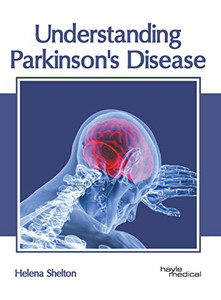Introduction to Parkinson's Disease Parkinson's Disease (PD) is a progressive neurological disorder that affects movement and can significantly impact the quality of life for those diagnosed. Understanding this condition is essential for patients, caregivers, and the broader community, as it fosters awareness and empathy, paving the way for better support and treatment options. This introduction will cover an overview of Parkinson's Disease, its historical perspective, and the importance of awareness and education. Overview of Parkinson's Disease Definition Parkinson's Disease is a neurodegenerative disorder characterized primarily by the degeneration of dopamine-producing neurons in the brain, particularly in a region called the substantia nigra. This loss of dopamine leads to the hallmark symptoms of the disease, which can include tremors, stiffness, slowness of movement (bradykinesia), and balance problems. Symptoms The symptoms of Parkinson's Disease can be classified into two categories: motor and non-motor. Motor Symptoms: 1. Tremors: Often starting in one hand, these involuntary shaking movements can occur at rest and diminish during purposeful movement. 2. Rigidity: Muscle stiffness can affect mobility and range of motion, leading to discomfort and pain. 3. Bradykinesia: This refers to the slowing down of movement, making everyday tasks more challenging and time-consuming. 4. Postural Instability: Balance problems may develop, increasing the risk of falls. Non-Motor Symptoms: 1. Sleep Disturbances: Many individuals with Parkinson's experience difficulty sleeping or may suffer from restless leg syndrome. 2. Mood Disorders: Anxiety and depression are common, stemming from both biochemical changes in the brain and the emotional toll of the disease.3. Cognitive Changes: Some patients may experience difficulties with memory and executive functions, leading to a form of cognitive impairment known as Parkinson's Disease dementia. 4. Autonomic Dysfunction: This can include issues with blood pressure regulation, sweating, and gastrointestinal problems. Diagnosis Diagnosing Parkinson's Disease typically involves a clinical evaluation by a neurologist specializing in movement disorders. There is no definitive test for PD; instead, doctors rely on a combination of medical history, symptoms, and neurological examinations. Imaging tests, such as MRI or CT scans, may be used to rule out other conditions. Stages of Parkinson's Disease Parkinson's Disease progresses in stages, often described using the Hoehn and Yahr scale: 1. Stage 1: Mild symptoms, usually affecting one side of the body.2. Stage 2: Symptoms become bilateral, and daily activities are not significantly impaired.3. Stage 3: Balance issues and falls become more common; moderate disability is present.4. Stage 4: Severe symptoms limit walking and require assistance for daily activities.5. Stage 5: Advanced stages with complete dependence on others for care.
- | Author: Mariam Reubens
- | Publisher: Independently Published
- | Publication Date: Jun 21, 2025
- | Number of Pages: 00122 pages
- | Binding: Paperback or Softback
- | ISBN-10: NA
- | ISBN-13: 9798289100726
